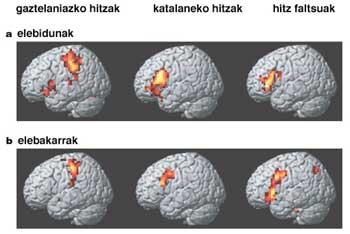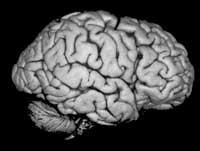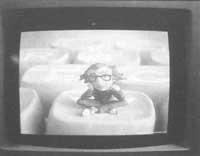Bilingual brains do not mix languages
2002/03/01 Galarraga Aiestaran, Ana - Elhuyar Zientzia

Numerous investigations have been conducted in response to these and other issues. Among them is the work done at the General Hospital of Singapore, published three years ago in the magazine Neuron. According to this study, bilinguals, regardless of language, use the same part of the brain to understand what they read. To carry out the research, the brains of some people who dominated English and mandarin were analyzed, using functional magnetic resonance imaging (fMRI) that reports real-time brain activity.
The result was against what was previously thought, since in the minds of bilinguals many research indicated that each language has its space. For example, it is well demonstrated that some people who have suffered brain damage, despite losing the ability to understand and speak one of the languages, retain the other.
It is clear, therefore, that there are still many doubts about the processes of understanding, speaking and preserving the language, especially in the case of bilinguals.
Working in one language closes the path of the other. How?
The neurophysiologists of the German University Otto von Guericke have taken a step to understand these processes. The results of the research have been made known through the journal Nature, according to which bilinguals have special mechanisms to prevent others from getting upset when they speak a language. In addition, before knowing the meaning of the words, the path to the language that is not using it is closed.
The research was carried out only with people who dominate Spanish and Catalan as well as Spanish. To see the brain activity of people in both groups, fMRI and potential measures (ERP) related to events have been used. In the experiment they were made to hear words from both languages while blending meaningless false words. When they heard the word in Spanish they had to press a button.

The answers of those who only knew Spanish were somewhat faster, although the difference is too small to be representative. In addition, both groups responded equally to the Catalan words. According to this, although bilinguals know the Catalan words, they abandon them before appropriating the meaning.
Apparently, words follow two paths in the brain: one leads from spelling directly to meaning and the other, before reaching meaning, leads to phonology. This second way allows bilinguals to discard words from the language that are not in use before knowing their meaning. That is, just listen to the melody of the words to know whether or not it corresponds to a language and rule out if it does not match the one being used. Proof of this is that, in the experience carried out, more activities have been presented in specific areas of the bilingual brain. In addition, the use of this second pathway suggests that the first one is inhibited. This prevents interference between the two languages.

Gai honi buruzko eduki gehiago
Elhuyarrek garatutako teknologia




